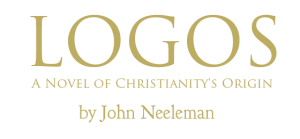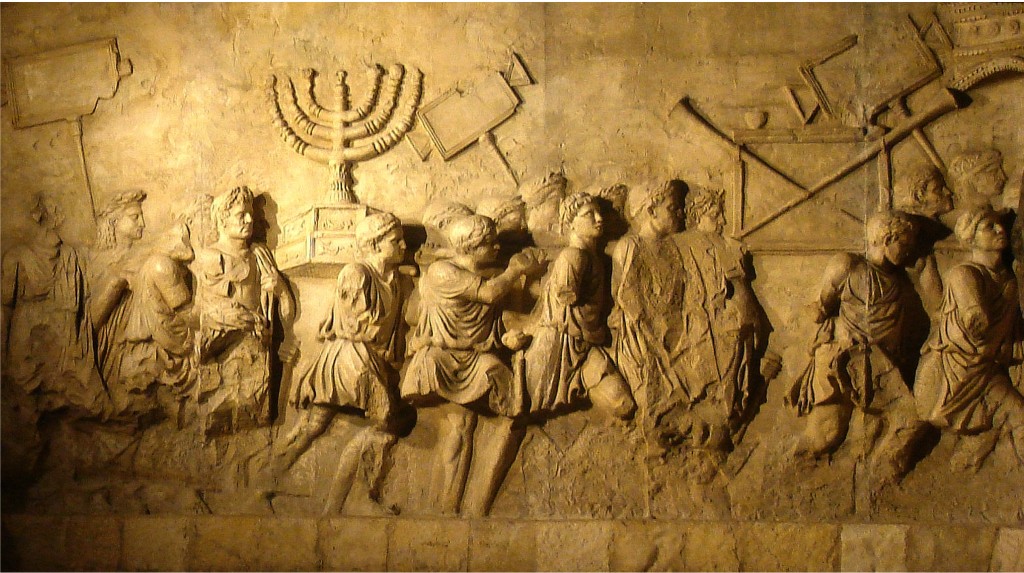I think the twentieth century political philosopher Leo Straus put it well when he wrote that the European mind became what it is “through the coming together of biblical faith and Greek thought.” “In order to understand ourselves and to illuminate our trackless way into the future, we must understand Jerusalem and Athens.” “Judeo-Christian” has long seemed to me an imprecise and inadequate, a useless label for whatever it is intended to identify, even largely redundant. “Judeo-Athenian” is to me more descriptive and more meaningful, even today.
Alexander the Great’s conquest of the Persian Empire was the proximate cause of the encounter between Judaism and ancient Greek intellectual achievements. The synthesis of these two metaphysical traditions produced the advent of Christianity. The mechanism by which the synthesis occurred was the Logos. “Logos” has been a continuous thread throughout the development of European culture and the New World cultures that it established and has influenced. Moreover, as Stephen Greenblatt explains in his brilliant non-fiction book “The Swerve: How the World Became Modern,” it is the Athenian element in European culture that produced the institutions that preserved the Iliad, Lucretius, Cicero, et al. that were so influential to Enlightenment and Renaissance thinkers.
The writings of Heraclitus, a Greek philosopher who lived in about 500 B.C., is the earliest evidence we have of the word “Logos” receiving special attention. If there were such a thing as a Greek-English dictionary at that time, you might find the word Logos defined to mean: an argument, reasoned discourse, an opinion, word, speech, account, to reason.
Among the contemporaries of the historical Jesus and Paul, was a scholar and philosopher in Alexandria named Philo, who lived form 20 BC to 50 AD.
Philo was a Hellenized Jew, and his family was among the richest in the Empire. They were tight with the emperor’s family and spent a lot of time in Rome.
His brother was a spectacularly wealthy merchant who donated money to gold plate the gates of the Jewish Temple in Jerusalem. Philo’s brother even loaned a substantial sum of money to the Jewish King Herod.
Philo’s family were merchants and civic leaders, but he was a famous philosopher who is very famous to this day.
Philo lived with one foot in the secular world and one in the religious tradition of his fathers – Judaism – and he set out to synthesize or reconcile those two traditions.
For example, Philo expounded about how the stories in the Hebrew scriptures were probably allegorical. But his focal point was the Logos.
He toyed with the idea that Logos was God, which he felt was in a sense true. But Philo felt that God defies human comprehension. So he refined the concept, ultimately deciding that Logos meant an intermediary divine being: Logos, Philo decided, is God in contact with human senses or understanding.
Philo wrote that intermediary beings are necessary to bridge the enormous gap between God and the material world. These would include angels of the Lord in the scriptures. Philo describes the Logos as the revealer of God symbolized in the Scriptures by an angel of the Lord
The Logos was the highest of these intermediary beings, and was called by Philo “the first-born of God” and the eldest and chief of the angels.
Philo also described the Logos as “God’s son,” “the being most perfect in all virtue, to procure forgiveness of sins, and a supply of unlimited blessings.”
That sounds very Christian, and Philo was a contemporary of the historical Jesus and Paul.
But actually Philo never was a Christian; he remained a devout Jew his entire life. So far as we know he never knew the historical Jesus or any Christians. To the extent that his writings refer to the Logos as an entity with human characteristics, it is strictly in an allegorical sense.
Philo also wrote that “the Logos of the living God is the bond of everything, holding all things together and binding all the parts, and prevents them from being dissolved and separated.”
Very soon we see Philo’s Logos in the letters of Paul of Tarsus, who lived at the same time as Philo—but with an important new feature: Paul turned the Logos into an actual human being; a man, Jesus.
In the First epistle to the Corinthians (8:6) he wrote: “There is one God, the Father, from whom are all things and for whom we exist, and one Lord, Jesus Christ, through whom are all things and through whom we exist.”
This is in contrast to Philo’s viewpoint. To Philo, the Logos was an abstraction, a neat way of fusing his cultural legacies of Judaism and Greek philosophy. But he would have considered the idea that the Logos was ever on the earth in human form to be very strange.
Ultimately, in the first sentence of the Gospel of John (1:1) the Logos is referenced explicitly; we read: “In the beginning was Logos, and Logos was with God, and Logos was God.” That is a lot closer to the original Greek written by the anonymous author of the Gospel of John than the way we read it in English: “In the beginning was the Word, and the Word was with God, and the Word was God.”
So how did the Logos get into Paul’s epistles and ultimately into the Gospels?
That’s a good question, I think. There’s no evidence in the extant record that Philo and Paul ever knew one another. There was no Internet or printing press.
It does appear plausible that they ran in the same circles: Paul was from Tarsus, a city of Hellenized Jews not so far from Alexandria, and his family, like Philo’s, was rich merchants, nobles, and Hellenized Jews. They made their fortune selling tents.
But beyond this, the facts run out.
In a New Yorker interview (October 14, 2009), Hilary Mantel, the author of Wolf Hall, said, “I try to stick with the facts until the facts run out.”
A part of the historical novelist’s craft is to extrapolate from where the facts run out – plausibly and with verisimilitude.
* * *
LOGOS was released on March 10, 2015, and the launch has been a success beyond my expectations. I want especially to thank the bookstores and our good friends Nick and Lisa Beard who are hosting events and book launch parties.
I also want to thank the Amazon Top Reviewers, Amazon Vine Reviewers, and bloggers who have read LOGOS so carefully and published such eloquent and thoughtful reviews. They really have “gotten” LOGOS. As an author the satisfaction you get form this is immense. As you toil away on your first novel you are haunted by the awful thought that you pour everything you’ve got into this and perhaps nobody will ever read it.

